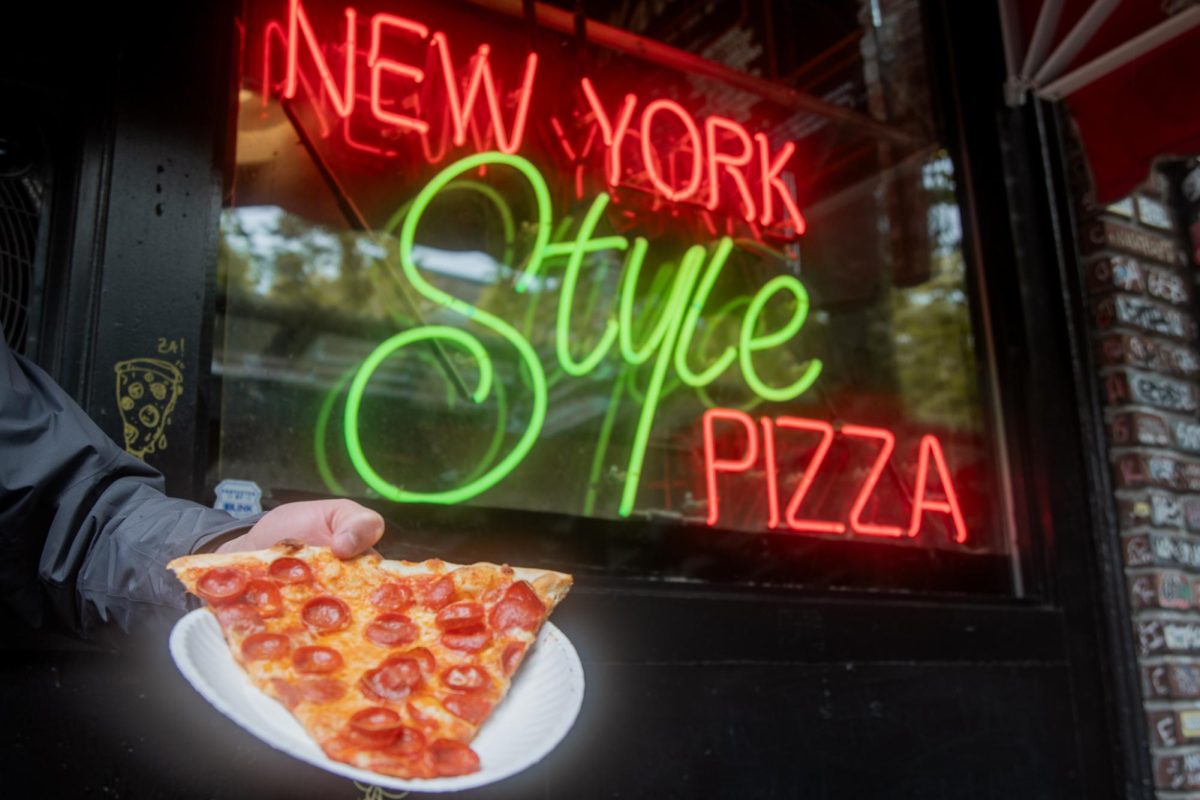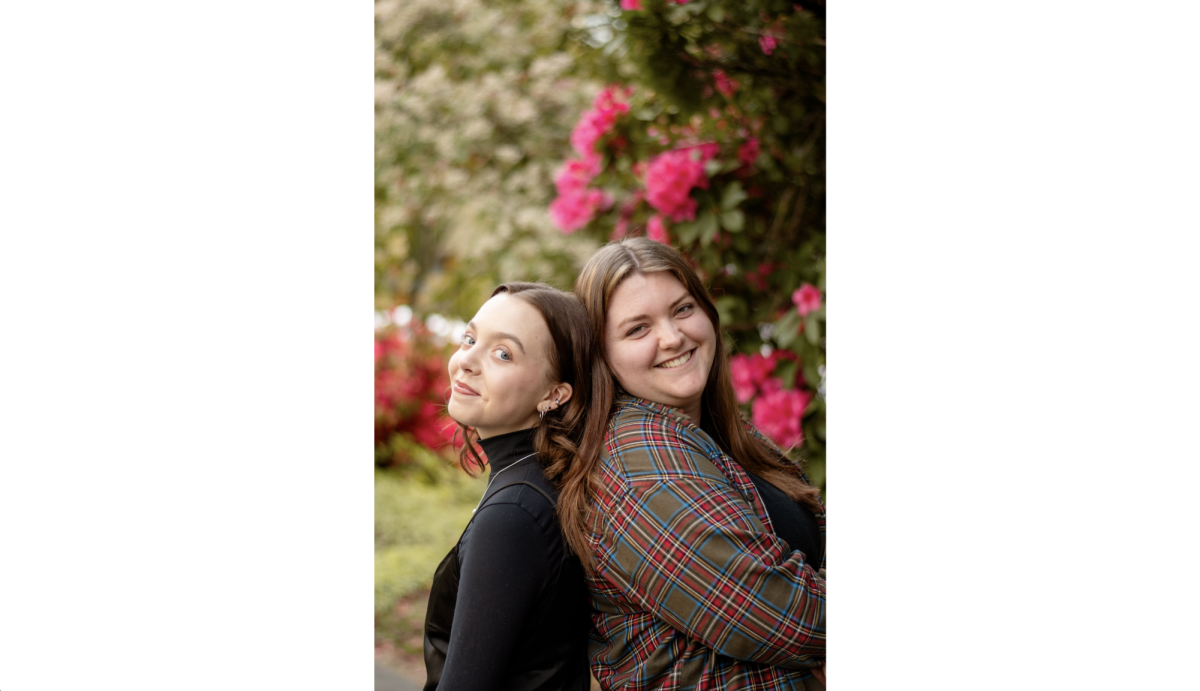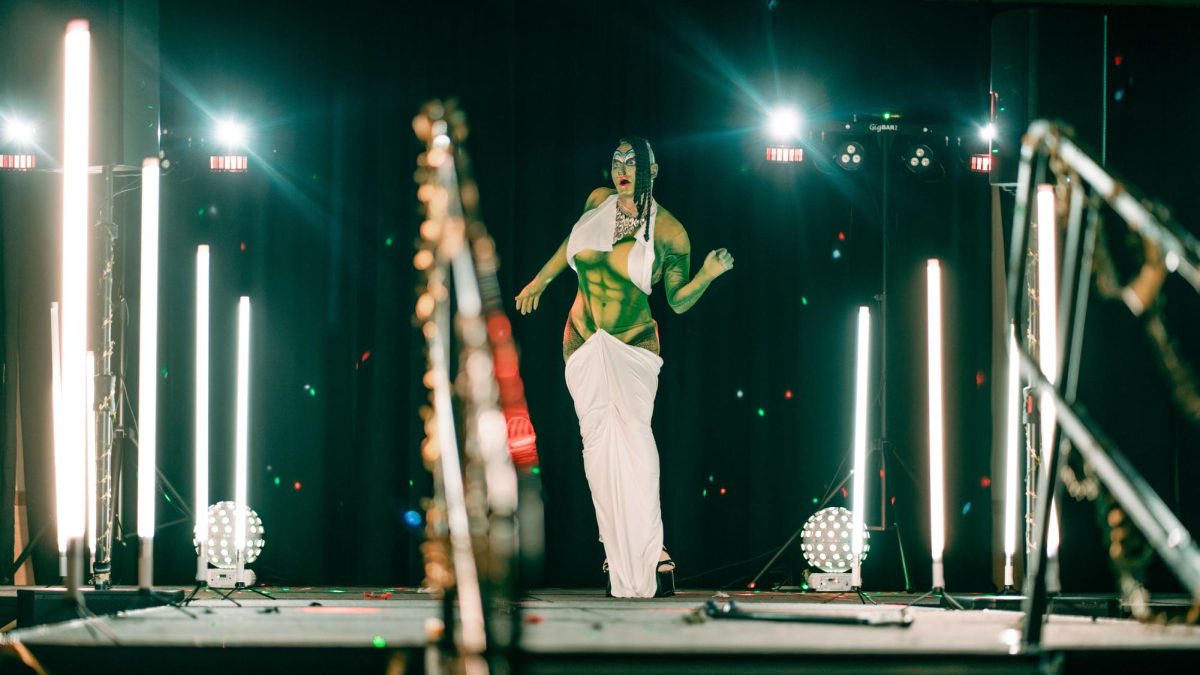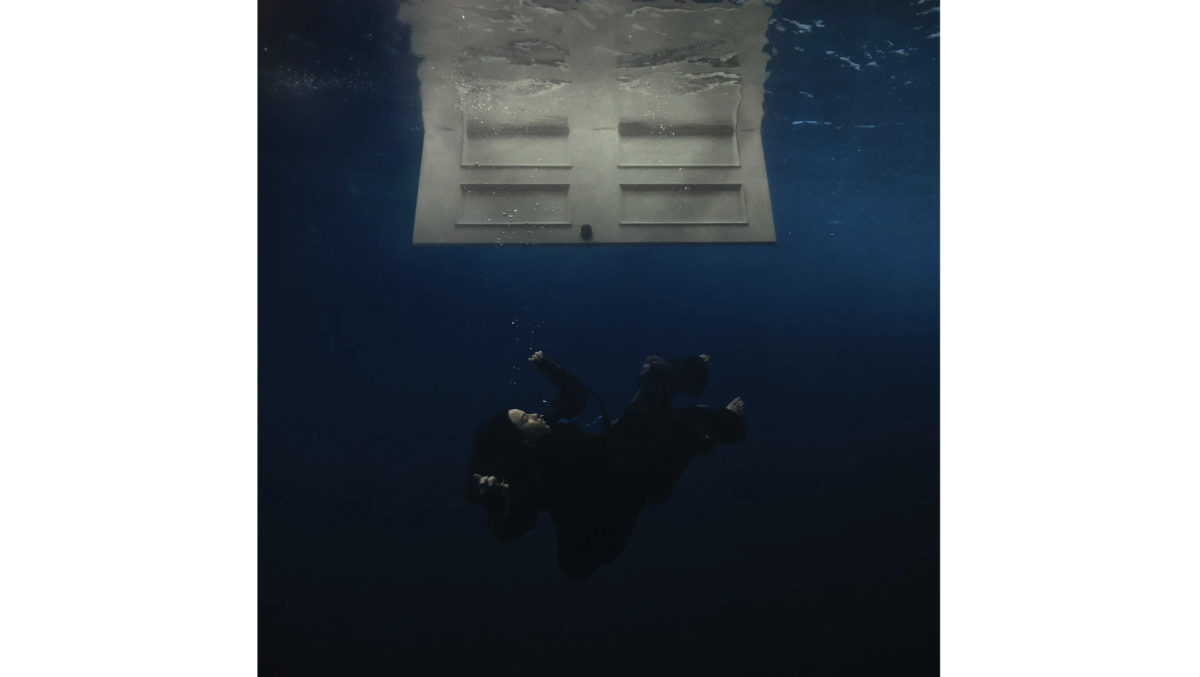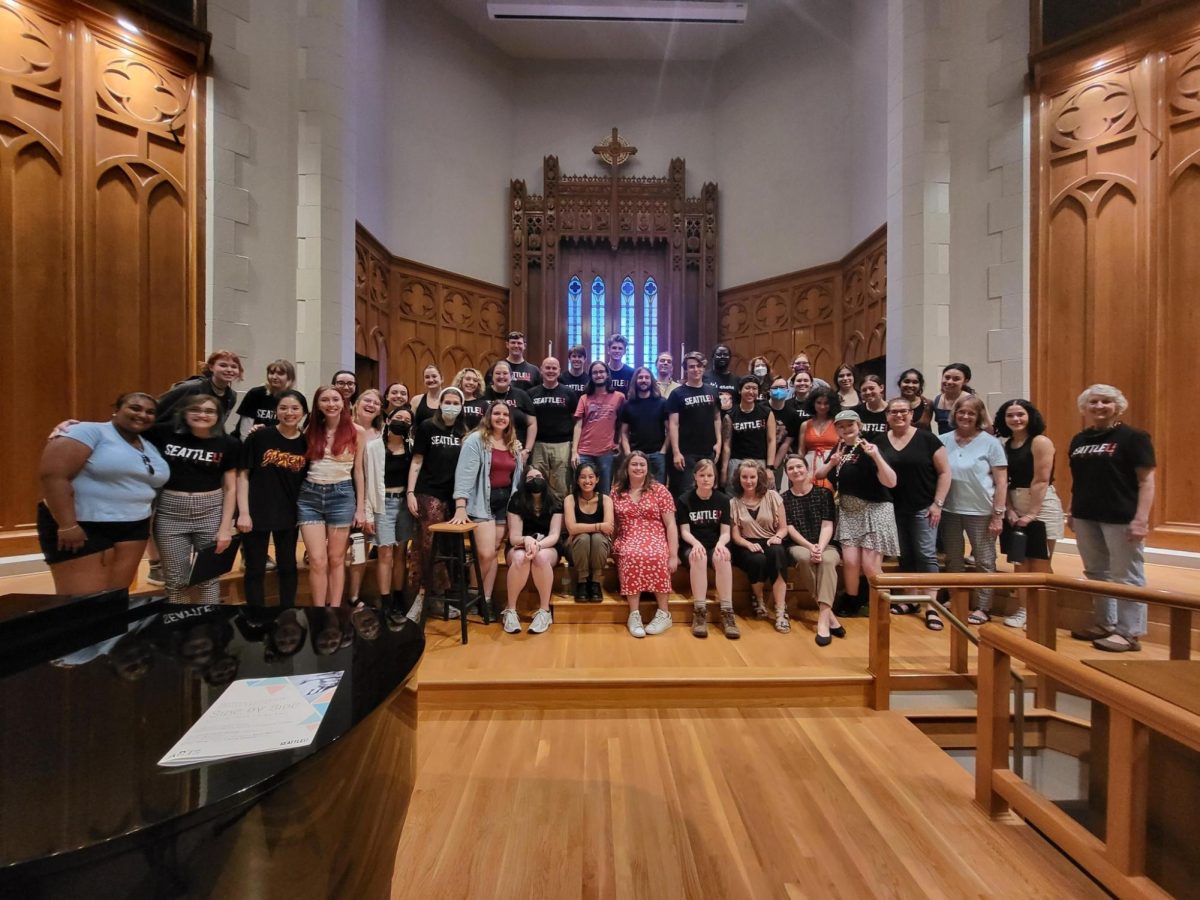Retouched images of celebrities in magazines and on Instagram almost always lack any evidence of stretch marks, touching thighs or love handles that are present on many bodies across the nation. These beauty standards can be suffocating and unrealistic for folks of all shapes and sizes. So, in support of the recent body positivity movement and National Eating Disorder Awareness (NEDA) week, two Seattle University organizations, Health and Wellness Crew (HAWC) and University Recreation (UREC) hosted events around campus to raise awareness about healthy body image and eating habits.
Last week, HAWC hosted an event titled “Discovering Strength rough Food” that featured in-person expertise from certified dietitian and personal trainer, Emily Edison, who talked about intuitive eating.
Intuitive eating focuses on the process of adjusting and reframing thoughts about food. Edison said that it’s important to see food as good. In adapting this new mindset, it gives people the permission to eat food and disregard the pressure of only eating what is considered clean or healthy.
By eliminating self-determined rigid categories of what one “can” and “cannot” eat, they can begin to see food as a tool and listen to their body to determine what Edison defines on her hunger scale as a three, or ideally hungry. Edison said that eating at a three prevents overeating and leads to eating until satisfaction, or a seven.
When choosing what to consume, Edison recommends eating what the body craves because it knows its needs. She also says that when eating something that is deemed “unhealthy,” folks should just commit to eating it without regret.
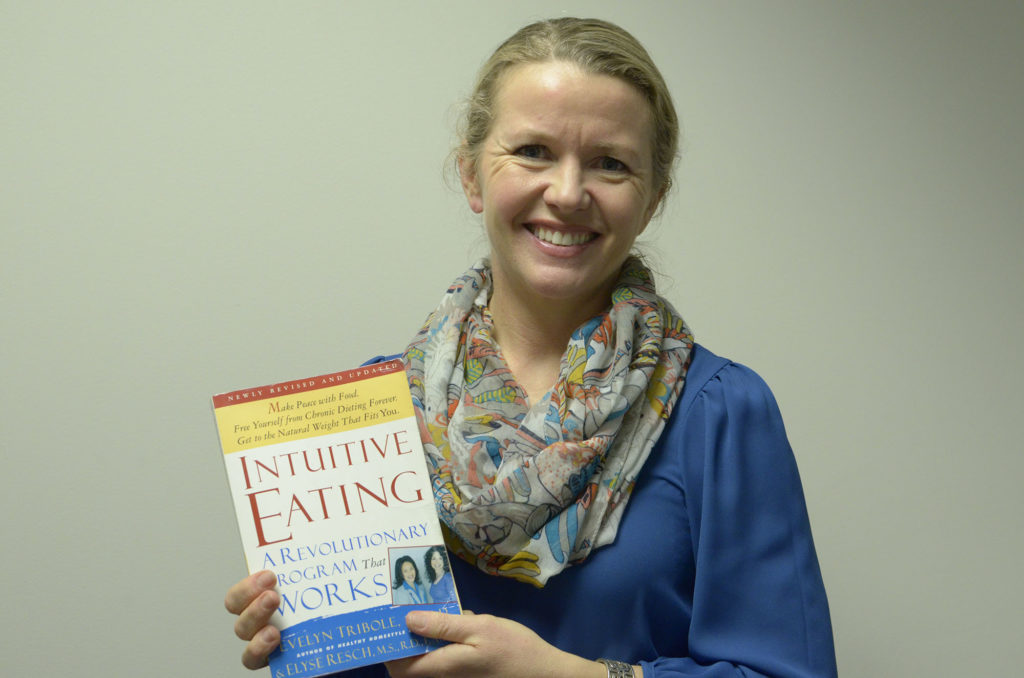
Intuitive Eating was first published in 1995 with the goal of teaching readers to rebuild a healthy body image and make peace with food.
Hallie MacPherson, a second- year, had no prior knowledge about intuitive eating but found it intriguing and something that she wants to implement into her life.
“Fueling your body for whatever you may partake in during your day is important. Feeling good about your choices [and] eating what you want and not just what you think you should eat, [helps] your body find strength,” she said.
MacPherson said that it is important for Seattle U to continue to host events like this because it gives students exposure to new topics and ideas.
“It is important to allow yourself to listen to those kinds of talks and be open to new ideas,” she said. “Seattle U does a good job of making us think differently. Putting intuition and eating together changes the synapses in your brain and allows you to understand things in a new way.”
The engagement specialist for HAWC, Julia Karambelas, echoed MacPherson and said that Seattle U needs to create more resources for students to learn about food and how to utilize nutrition.
“Coming to college, there are so many opportunities for food. Anything centered around nutrition [through] a positive mindset would be very helpful for Seattle U,” Karambelas said.
Right now the only on-campus resources available to students surrounding food education and supporting those who have eating disorders are HAWC and CAPS.
Karambelas believes that Seattle U’s efforts to support eating disorder awareness and positive body image need to be beyond NEDA week.
“We need a different mindset on food because we are a culture that centers around diets and calories. Everyone focuses on those aspects of food. [Instead] we should be using food as a tool to help us feel our best and not constricting ourselves,” she said.
UREC also launched their fourth- annual Project Positive event to encourage folks to express self- love. e event was hosted to build awareness for the way people currently view their bodies and provide resources for those who have disordered habits with their body.
Melissa Holzhauser, UREC’s marketing manager, said that Project Positive is also meant to encourage the Seattle U community to love themselves by celebrating the unique parts of their identity.
During their week-long event, they tabled with one of their partners Opal: Food + Body Wisdom. Opal is a local Seattle clinic for eating disorders that provides the community with care and information to help shift the way people talk about food and their bodies. In addition to their tabling outreach, UREC organized a program titled “Yoga for EveryBODY.”
“Yoga for EveryBODY is our signature yoga event [that] encompasses all pieces of Project Positive. [It] provides a safe space where we can delve into how people feel in their bodies,” Holzhauser said. “We try to bring positivity [and encourage] introspection of our relationship with our bodies.”
Focusing on the programs that worked well last year, UREC pursued more ways for the Seattle U community to passively engage by having participants write down what they celebrate about themselves and build their own self-care kits with candles, lip balm and tea.
One of the hopes Holzhauser has for next year’s Project Positive is to have more people participate in creating a positive atmosphere.
“We just hope when people come into this space [they can] acknowledge their self-worth and honor what they need…my favorite part at the end of [the] week is reading all the ‘I Celebrate’ because it is amazing what this week has brought out for them.”
Hunter may be reached at
[email protected]







